Israel says Iran Adding Advanced Centrifuges At New Nuclear Sites
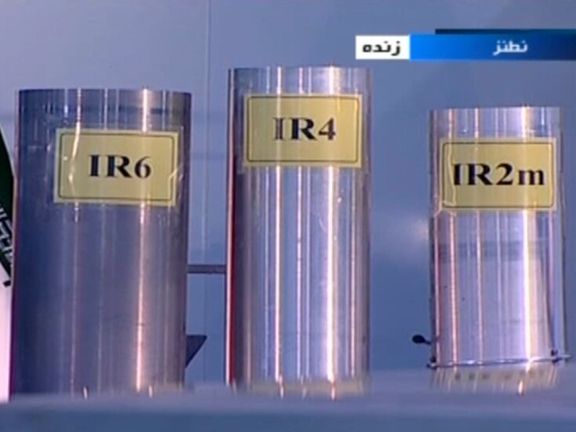
Iran is working on advanced uranium centrifuges at new underground sites being built near its Natanz nuclear plant, Israel's defense minister said on Tuesday.

Iran is working on advanced uranium centrifuges at new underground sites being built near its Natanz nuclear plant, Israel's defense minister said on Tuesday.
Benney Gantz in a speech at Reichman University near Tel Aviv gave figures that appeared to go beyond those published by the UN‘s International Atomic Energy Agency, IAEA.
Centrifuges are used to purify uranium for civilian projects or, at higher levels, to make fissile materiál for a nuclear bomb. Iranian progress in the field is being watched by world powers trying to resurrect the 2015 nuclear deal with Tehran, known as JCPOA.
"Iran is making an effort to complete the manufacturing and installation of 1,000 additional advanced IR6 centrifuges in its nuclear facilities, including new facilities being built at underground sites abutting Natanz," Gantz said.
A March 3 report by the UN International Atomic Energy Agency (IAEA) said Iran had installed or planned to install a total of three IR6 cascades, amounting to around 660 machines.
IAEA chief Rafael Grossi said last month that Iran had set up a new underground Natanz workshop for making centrifuge parts, an apparent precaution against attacks.
In his remarks, Gantz alluded to Israel's long-standing threat to take military action if it deems diplomacy is at a dead end to deny its arch-enemy the means to make nuclear weapons.
"The cost of such a future war, which we hope will not happen, can be prevented or reduced" with tougher negotiations by world powers, he said.
Reporting by Reuters
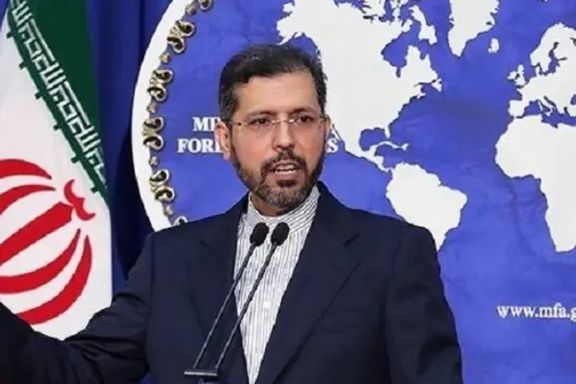
Tehran says Washington must respond to proposals it put forth last week during the visit of EU coordinator Enrique Mora, to break the stalemate in nuclear talks.
“We can be in a position where all sides can return to Vienna if the American side responds,” he told reporters, reiterating that the US needs to make a “political decision,” Saeed Khatibzadeh told reporters at his weekly press briefing Monday.
Khatibzadeh also accused Israel of acting against restoration of the 2015 nuclear deal, Joint Comprehensive Plan of Action (JCPOA), “whenever an initiative is made for diplomacy.”
The Iranian side organized “very serious and result-oriented negotiations with special initiatives” during Mora’s two-day visit and several long talks were held between him and Iran’s top negotiator Ali Bagheri-Kani, he told reporters.
Before his visit to Tehran, Mora said the was going to “work on closing the remaining gaps of this negotiation continues” by presenting a compromise formula that would be acceptable to both Tehran and Washington.
The eighth round of talks in Vienna which began in late December, came to an abrupt pause in mid-March and all negotiators returned to their capitals for political consultations. Tehran and Washington, which only negotiate indirectly through the European coordinator of the talks, have repeatedly put the onus of a decision to resume the talks and a final deal on one another.
Last Monday, ahead of Mora’s visit, Khatibzadeh had told reporters that the visit was not expected to make a breakthrough in the stalled nuclear talks.
Khatibzadeh reiterated on Monday that all sanctions imposed on Iran by the administration of the former US President Donald Trump dubbed as “maximum pressure campaign” should be dismantled. “Iran's demands have been always within the text of the JCPOA and Resolution 2231,” he added.
The Iranian spokesman called the recent remarks of the US State Department Spokesman Ned Price who put the onus in striking a deal on Iran ‘hackneyed”.Commenting on the possibility of a final deal and whether the US would take the Revolutionary Guards (IRGC) off the list of Foreign Terrorist Organizations (FTO), Price said Friday that that at a deal remained "far from certain" at this point.
The IRGC was added to the US list of Foreign Terrorist Organizations by the Trump administration in 2019.
Iranian officials have repeatedly said that delisting of the IRGC is a “redline” that it will not cross.
“Negotiations [have] reached a point that obstacles can only be untied by accepting Iran’s rational and principled obligations. [The] US by negligence, and [the] EU by inaction, destroyed the opportunity to benefit from Iran's goodwill. If they have the will, we are ready and an agreement is available,” Secretary of Iran’s Supreme National Security Council Ali Shamkhani tweeted Saturday.
Mora’s visit coincided with a day-long visit by the Emir of Qatar, Tamim Al Thani, which pundits believe was aimed at salvaging the talks although there was no mention of the nuclear issue in the official reports of his meetings in Tehran.
The Qatari Emir had also visited Tehran in January 2020 when tensions were extremely high between Tehran and Washington over the US killing of Iran’s Revolutionary Guards’ Qods Force Commander Ghasem Soleimani in Baghdad in an apparent bid to calm the standoff of the two.
When asked about Russia’s role in Vienna talks Monday, Khatibzadeh said Moscow had a constructive role in the talks, but it is not out of the ordinary that Europeans may “undermine Russia’s role as a mediator” in matters such restoration of the JCPOA given the war in Ukraine.
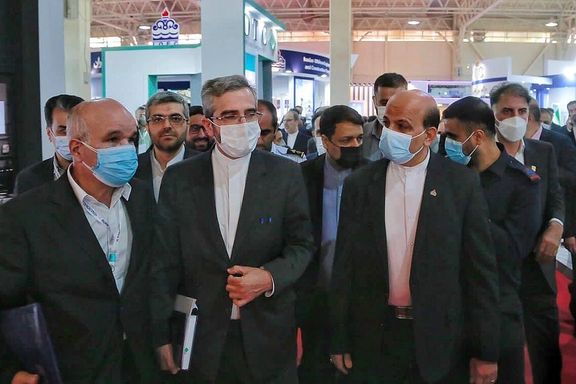
Iran’s deputy foreign minister says the country is serious in talks to revive the 2015 nuclear deal but is also determined to distrust the “enemy” and foreigners.
Ali Bagheri-Kani, who is also Iran's chief nuclear negotiator in Vienna talks with world powers, made the remarks on Sunday as he visited Iran Oil Show 2022 underway in Tehran, adding that Iranian scientists and industrialists of the energy sector are a major force in the country’s ability to "neutralize sanctions."
He said the "art" of circumventing sanctions was once the industry's only instrument against George W. Bush's "smart sanctions", which then turned into "technology" to counter Barack Obama's “crippling sanctions" and then into "knowledge" to thwart "sanctions imposed by Donald Trump's maximum pressure campaign."
Other countries under sanctions are now seeking to acquire "sanctions neutralization knowledge" from the Islamic Republic, he added.
Bagheri-Kani went on to say that scientists and industrialists not only empower the country’s diplomacy to foil sanctions but also boost Iran’s deterrent power to stand against such measures.
The Vienna talks came to a standstill in mid-March as major stumbling blocks between Tehran and Washington remained unresolved.
A major disagreement reportedly remains the US listing of Iran’s Revolutionary Guards (IRGC) as a ‘foreign terrorist organization’ while Iran has also refused to drop calls for retribution for the US killing IRGC general Qasem Soleimani in Baghdad in 2020.
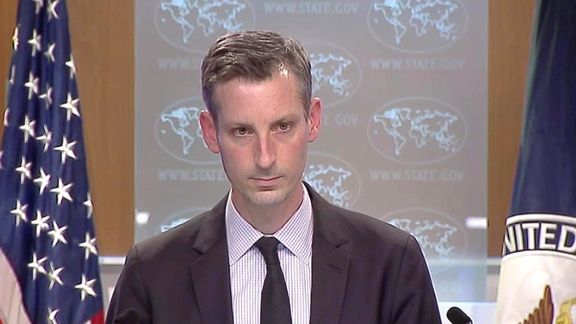
Despite Iranian and European officials expressing optimism over resumption of nuclear talks, the US response on Friday was guarded, putting the onus on Iran.
Commenting on the possibility of a final deal and whether the US would take the Revolutionary Guards (IRGC) off the list of Foreign Terrorist Organizations (FTO), the US State Department Spokesman Ned Price said Friday that that at this point a deal remained "far from certain." However, he described the resumption of conversation after several weeks of delay as important and said messages have been conveyed back and forth through the EU coordinator of the talks, Enrique Mora.
Mora was in Tehran this week to make another attempt at breaking the stalemate in the Vienna talks to restore the 2015 nuclear deal, Joint Comprehensive Plan of Action (JCOPA) which came to a pause in mid-March when Iran demanded that the IRGC be delisted.
Mora’s visit coincided with economic chaos in Iran resulting from a sudden jump in food prices followed by anti-government protests. But it is not clear if Tehran feels under pressure to make a deal and lift US economic sanctions or has decided to muddle through despite financial pressures.
"We are preparing equally for scenarios in which we have a mutual return to compliance with the JCPOA and in which we do not.It is up to Iran to decide whether it wants to conclude a deal quickly," Price told reporters.
Price on several occasions has refused to comment on the possibility of IRGC's delisting which Iran insists is a "redline", and said the US does not "negotiate in public".
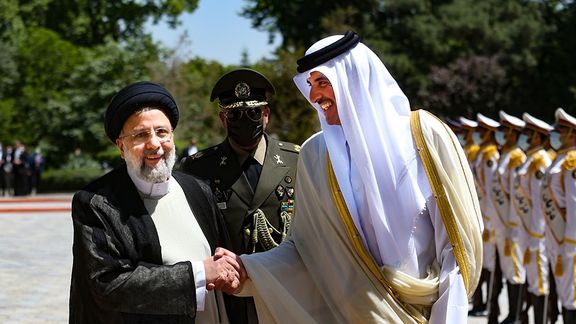
The EU's foreign policy chief, Josep Borrell told reporters at a G7 foreign ministers' meeting in northern Germany Friday that Mora's visit to Tehran has unblocked the process of negotiations. "It has gone better than expected - the negotiations were stalled, and now they have been reopened," Borrell said.
The Iranian Foreign Minister Hossein Amir-Abdollahian has also expressed optimism following Mora's two-day visit and his meeting with Iranian officials but has equally put the onus on the United States. "A good and reliable agreement is within reach if the United States makes a political decision and adheres to its commitments," he said in a tweet on Friday.
Iranian media have sounded optimistic following Mora's visit, which coincided with a visit by the Emir of Qatar, Sheikh Tamim Al Thani, to Tehran. Although there was no mention of the nuclear issue having been discussed during the Emir's visit in Iranian media, pundits says his mediation between Tehran and Washington could have a positive role in the future of the talks and help break the deadlock.
"The Qatari Emir's visit could be [an attempt at] creating a new mechanism and ending the stalemate in the talks between Iran and 4+1 countries in Vienna," international affairs expert Hasan Hanizadeh wrote in a commentary entitled "Resolution of the stalemate in Talks" in reformist Arman-e Melli newspaper Saturday.
"The Emir's extensive relations with European powers and the US can have a positive impact on the outcome of the Vienna talks," Hanizadeh wrote.
In an interview with Arman-e Melli on Saturday, another international affairs expert, Morteza Makki, said besides Qatar, Iraq and Oman are trying to bring the nuclear talks to a conclusion. "These are signs that there is a collective will to restore thee JCPOA and these diplomatic moves together may help make a success out of Enrique Mora's visit," he said. "It looks like Enrique Mora was given a green light when he came to Tehran and that Tehran has shown flexibility and wants to hear out the other side's arguments," he said.

A claim by Josep Borrell, European foreign policy chief, that EU envoy Enrique Mora had “unblocked” Iran nuclear talks sits uneasily with Washington’s expectations.
Borrell said in Germany Friday that Mora’s trip to Tehransince Tuesday had been “positive enough” after the envoy called his meetings in Iran “better than expected.” Mora has chaired year-long nuclear talks in Vienna.
A US State Department spokesman told Iran International late Thursday that Washington welcomed Mora’s “efforts to bring these negotiations to a successful conclusion” but said that the US continued to believe that “Iran needs to make a decision,” and that with talks to revive the 2015 Iran nuclear deal (the JCPOA, Joint Comprehensive Plan of Action) paused since March, the spokesman insisted Tehran need to make a clear choice.
“We are not negotiatingin public, but if Iran wants sanctions lifting that goes beyond the JCPOA, they will need to address concerns of ours beyond the JCPOA,” the spokesman said. “Conversely, if they do not want to use these talks to resolve other bilateral issues beyond the JCPOA, then we are confident that we can very quickly reach an understanding on the JCPOA...”
A State Department spokesperson was quoted by Barron's on Friday as thanking Mora for his efforts but adding, "That said, at this point a deal remains far from certain."
The Vienna talks have struggled to agree which US sanctions – including those introduced since Washington left the JCPOA in 2018 – violate the agreement, and exactly how Iran should return its nuclear program, expanded since 2019, to JCPOA limits. A major disagreement reportedly remains the US listing Iran’s Revolutionary Guards (IRGC) as a ‘foreign terrorist organization’ while Iran has also refused to drop calls for retribution for the US killing IRGC general Qasem Soleimani in Baghdad in 2020.
IRGC Issue ‘Beyond The JCPOA’
The State Department spokesman told Iran International Thursday that Washington considered Iran’s request to delist the IRGC as one of several “bilateral issues beyond the JCPOA.” Hence, said the spokesman, “if Iran wants sanctions lifting that goes beyond the JCPOA, they will need to address concerns of ours beyond the JCPOA.”
Iran has given no sign it is drawing back from its insistence that the US is preventing JCPOA revival by insisting on measures incompatible with the agreement including – Tehran says – the IRGC listing.
In a tweet Friday, Iranian foreign minister Hossein Amir-Abdollahian described Mora’s visit as “another opportunity to focus on initiatives to resolve the remaining issues” while adding that “a good and reliable outcome” was “within reach if the US makes is decisions & adheres to its commitments.”
Echoing Mora’s guarded optimism, a German Foreign Ministry spokesperson said Friday there was “a proposal on the table that is very fair for all sides." But in suggesting Iran needed to “refrain from demands that go beyond the JCPOA” in order to bring “an early conclusion to these talks” the spokesman apparently reflected the US position.
Has the EU squared the circle? In announcing a positive outcome to this week’s contacts, Borrell and Mora may be suggesting Tehran has agreed to continue engagement– possibly through a new process – rather than shifting its position.
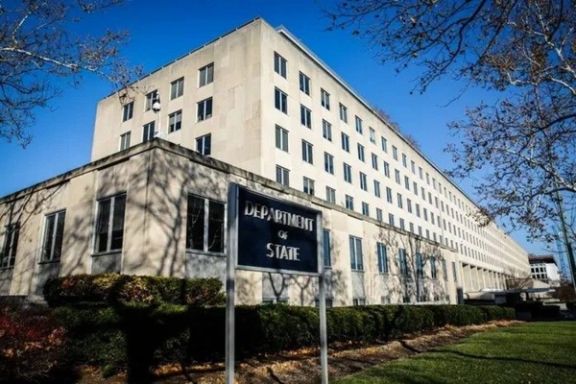
A US State Department spokesperson has told Iran International that Washington is still interested in reviving the 2015 deal but is also preparing for alternative scenarios with its allies.
The spokesperson made the remarks on Thursday against the backdrop of visits to Tehran by the European Union’s coordinator of the nuclear talks, Enrique Mora, and Qatar’s ruler, Emir Sheikh Tamim bin Hamad Al-Thani. “The administration, along with our Allies, is preparing equally for scenarios with and without a mutual return to full implementation of the JCPOA.”
About the trips by Mora and Al-Thani, the spokesman said Washington is in close contact with the EU coordinator, who continues to convey messages back and forth, and appreciated “the constructive role Qatar has played in our efforts to achieve diplomatic resolutions of important and difficult issues between the US and Iran, including the unjust detention of US citizens and our effort to achieve a mutual return to full implementation of the JCPOA”.
In response to a question about Iran’s demand to remove the Revolutionary Guard (IRGC) from the list of Foreign Terrorist Organization, the spokesperson said that "if Iran wants sanctions lifting that goes beyond the JCPOA (the Joint Comprehensive Plan of Action), they will need to address concerns of ours beyond the JCPOA”.
The official added, “Conversely, if they do not want to use these talks to resolve other bilateral issues beyond the JCPOA, then we are confident that we can very quickly reach an understanding on the JCPOA and begin reimplementing the deal”.
On Friday, the EU's foreign policy chief Josep Borrell said Mora’s trip has unblocked the negotiations, expressing hope for the prospect of reaching an agreement.